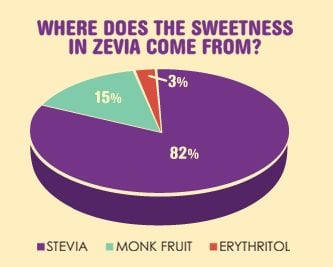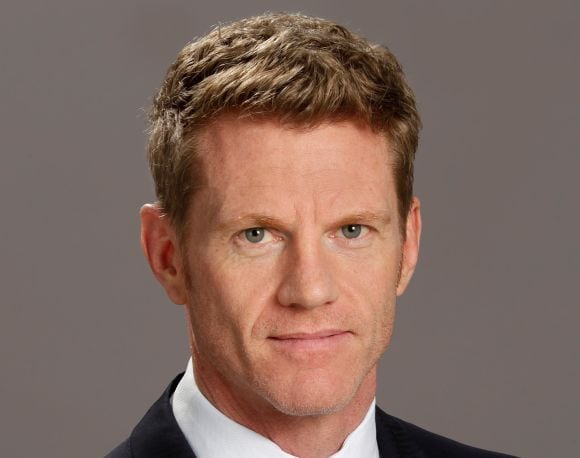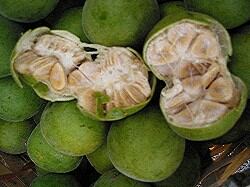The Zevia brand - historically sweetened with stevia and erythritol and now with some monk fruit as well (in the US) - accounts for 78% of the naturally-sweetened US soda segment and is now worth about $60m at retail from a standing start in 2007.
Stocked in 16,000 stores from Kroger to Safeway, Target, HEB, Whole Foods and Meijer, it’s also performing very strongly on Amazon, Spence told FoodNavigator-USA.
But he’s still barely scratching the surface: “I think Zevia could be a $1bn brand,” says Spence.
“When we’re on the shelf next to these billion dollar brands we’re outselling them. We’ve only got a 0.4% share of the diet soda category so there is a lot of upside. The brand is really resonating with consumers.”
Consumers get that stevia is a leaf and monk fruit is a fruit, but we’re not shouting about being ‘all-natural’
So where's the growth coming from?
“Growth is coming from adding new distribution points/stores, expanding the space allocation in existing stores and achieving higher sales velocity - we’ve made significant gains here," he says.
While overall space allocation in the soda category is under pressure, Zevia's share of it is increasing, he says: "Retailers are making good margins on Zevia, it makes sense to switch out a third or fourth facing of, say, Diet Sunkist, for another Zevia line.
“There is also a lot of potential in overseas markets such as Mexico - where there is a soda tax now - the UK and other markets.”

As for what the Zevia brand stands for, the core proposition is zero calories and no artificial sweeteners, he says. The focus is carbonates, but it could potential move into non-carbonated formulas.
So is he plugging Zevia as ‘all-natural’?
“We’re in the process of going through the Non-GMO Project verification process,” says Spence. “But we’re not shouting about our product being ‘all-natural’, I’m not sure that this is a compelling attribute for consumers anyway.
“But they can see that Zevia has zero calories and contains no artificial sweeteners. They also understand that stevia is a leaf and monk fruit is a fruit.”
People are moderating their diet soda consumption, not exiting the category
So what does he make of recent Nielsen data, which shows that unit sales of diet carbonates from the top three players combined (Coke, Pepsi, Dr Pepper) declined by around 7% last year?

Does this show that people are avoiding diet soda because they are concerned about its ingredients, or is it because they are just more interested in other beverages, and that diet soda may just be in terminal decline?
Given that penetration levels for diet soda haven’t really changed, Spence’s view is that people are just cutting down “because they are not comfortable with artificial sweeteners”, he claims.
“People are just moderating their consumption - drinking three cans a day instead of six.”
Formulation: It’s a process of continuous improvement
But on to taste. How has Zevia managed to create zero-calorie sodas that taste great when the industry’s biggest guns still seem to be struggling on this front, especially when it comes to cola (none of the big three have launched a zero-cal/diet cola sweetened with stevia to date)?
“R&D is only part of the equation,” says Spence, “It’s just as much a marketing issue for them.” All of the big players have been experimenting with natural sweeteners and blends for years, after all, and no doubt Pepsi and Coke have got a lot more cash to pump into R&D than Zevia.
However, Zevia doesn’t have other brands to worry about, he said. “We’re completely focused on one brand. For the big guys to create a diet cola with stevia, what does it say about their regular diet cola product? How do they price and position it compared with the old one?”

For Zevia, the formulation is constantly evolving, he adds. “It’s a process of continuous improvement. I’ve been working with stevia for 13 years. It’s like going from MS DOS to Windows, and then to the latest Apple operating system.
“We started off with Reb-A 80% purity, then 95%, 97%, and now we’re using 99%. Recently we added some monk fruit, which enhances sweetness and reduces bitter notes."
Monk fruit: The new formulation was overwhelmingly preferred
It’s always risky changing a formulation when you have a very successful product because people get used to it, he acknowledges.
"But we did extensive consumer testing and the new formulation was overwhelmingly preferred. We’ve had great feedback from the market and the monk fruit is now in all 15 flavors for the US market.”
